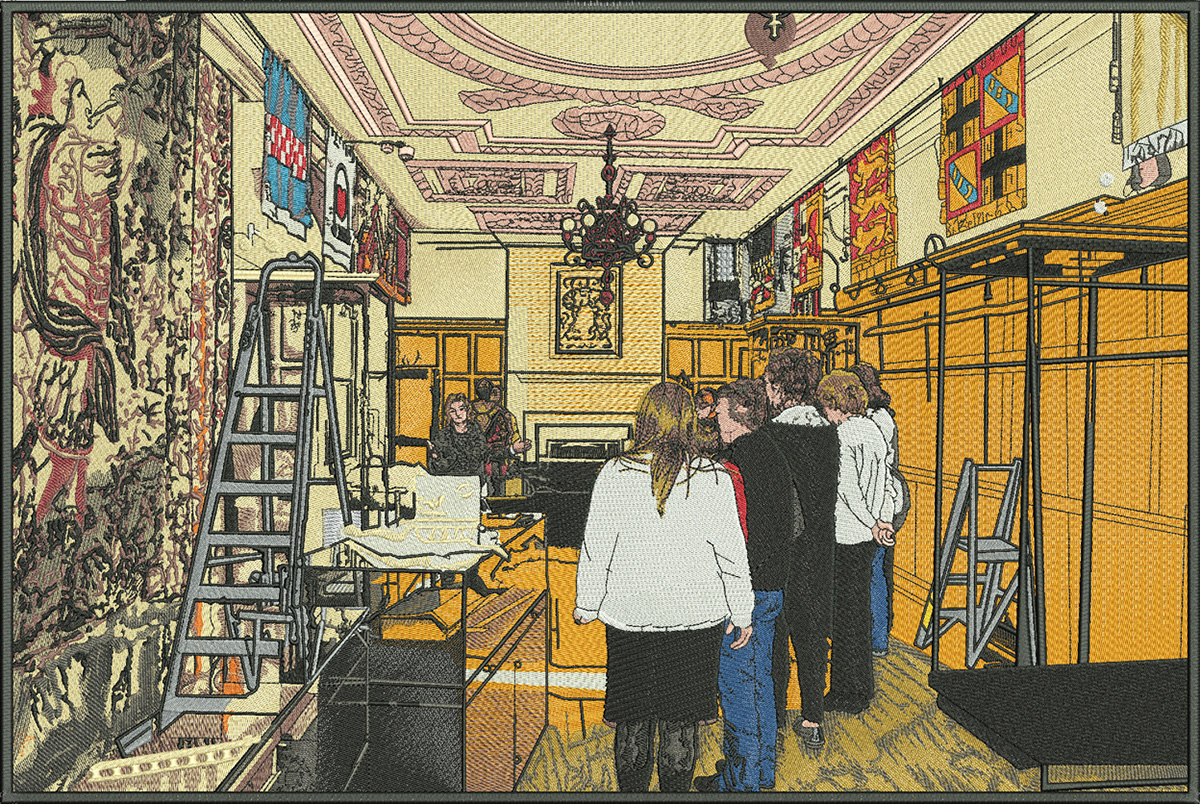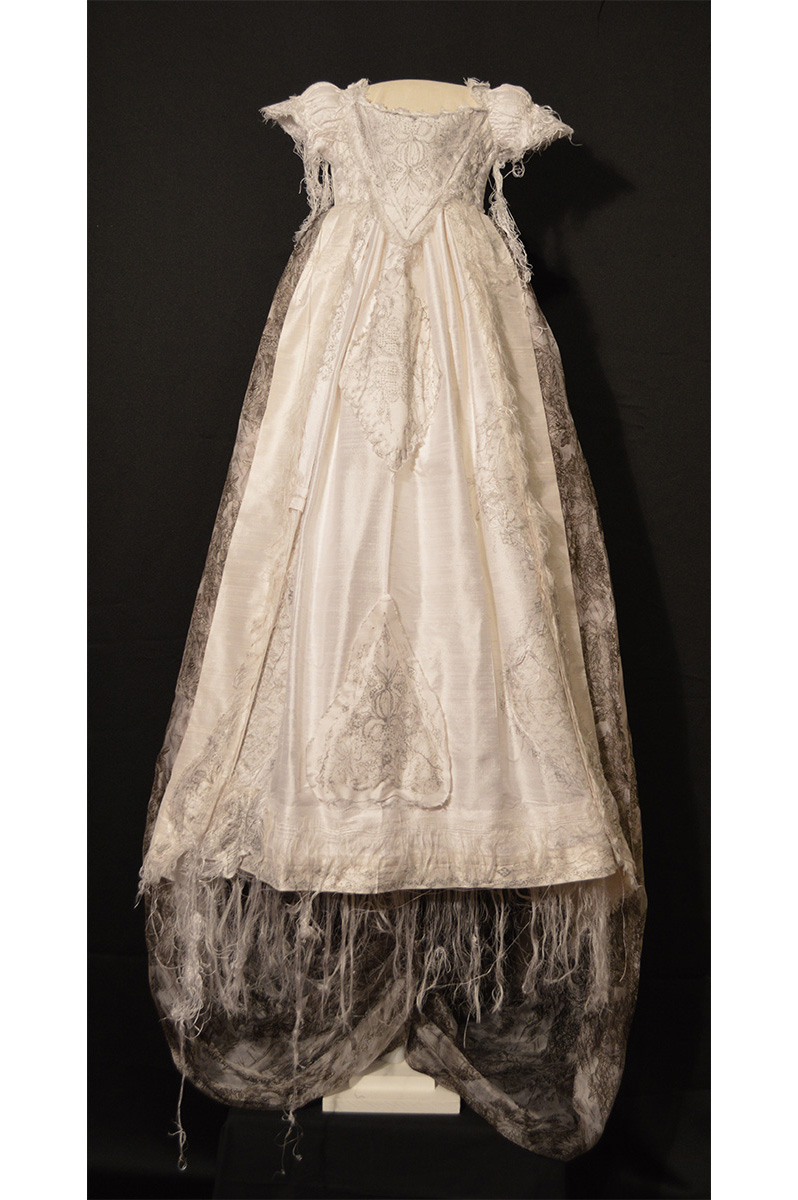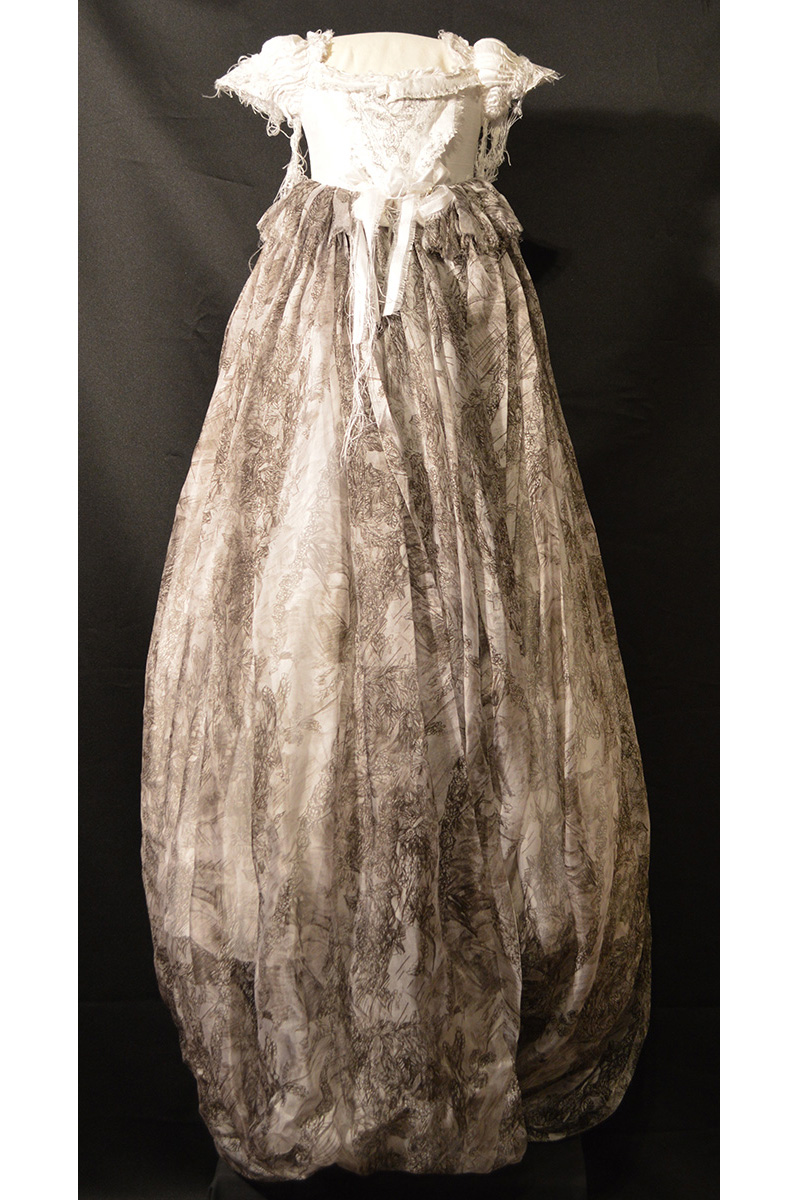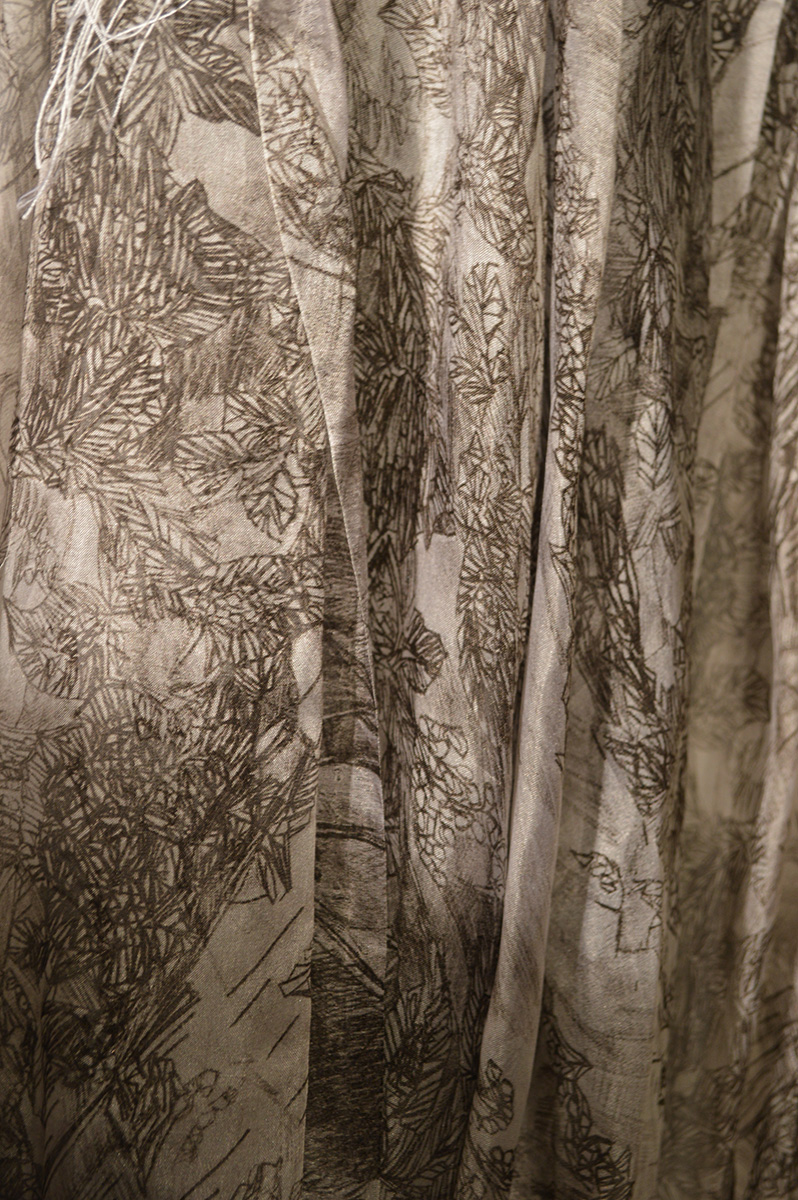Kathleen Mullaniff LG and Emma Dick reflect on a joyful collaboration with the women of the Dean Castle Textile Team.
The Invisible Hand and Women’s Work: Dean Castle Textile Team at the Dick Institute, Kilmarnock.
Kathleen Mullaniff and Emma Dick

Our work with the Dean Castle Textile Team is the second socially-engaged project since 2013, where we have linked textiles, women’s history and Irish-Scottish diasporic cultures. The Dean Castle Textile Team visited the result of our first collaboration, in a 2015 exhibition with MYB Textiles in Newmilns, Ayrshire, where we had investigated the relationships between lace-making, technology, painting and the feminine. 1 We established an immediate rapport with Linda Fairlie and the volunteers from the team because of our common interests and shared values. Our initial conversations developed in so many interesting directions, reminiscing about textiles we used to make at school and sharing a joy in the collection of christening gowns held in Dean Castle. Meeting Linda Fairlie and the women of the Dean Castle Textile Team in 2015 was a meeting of minds. We decided to visit Dean Castle in Kilmarnock and learn how the team of volunteers worked together, conserving the historic textile collections of Dean Castle, creating costumes for local youth theatre groups and providing a real focus for community engagement and the celebration of local textile and craft skills in Scotland.

Our collaboration brings together our different skills and interests in textiles, dressmaking and entrepreneurship. Over many years, Kathleen has developed a body of painting works influenced by the stories and experiences of her family who migrated from Longford in Ireland to London in the 1960s. Her mother apprenticed as a tailor and did piecework for a factory at home and as a child growing up Kathleen learned how to mend and stitch things such as dresses for dolls and make samples. As she developed as a painter, Kathleen transferred many of these stitching skills into her painting and drawing techniques, meditating on the layers of oil and brush strokes just like she believed her mother was entranced in stitches. Kathleen’s sister Pauline ,who also learnt dress-making from her mother, went on to become a fashion designer and she later became an integral part of this project as it evolved.
Emma’s family on her father’s side came from Cookstown in Northern Ireland and migrated to Glasgow in the early 1900s, whilst her mother’s family came to Glasgow from Aberdeenshire. Her great aunts worked on clothing alterations and in a slipper factory in Glasgow and one of her aunts emigrated to America in the 1960s and still runs a successful clothing alteration business in Wyoming, Pennsylvania. One of Emma’s earliest memories as a child is sewing through her own finger whilst playing with her grandmother’s Singer sewing machine – all black metal and gold décor with a side turning wooden handle that you wound manually. It produced just a solid straight stitch but its early use marks the starting point of a lifelong passionate interest in sewing and textiles, gender and development.

On our first visit to Dean Castle, over a well-worn wooden table laden with homemade fruitcake, tea, coffee and biscuits, we met and learned about the life stories of an extraordinary group of women who have been meeting in the fifteenth century kitchens of Dean Castle every Wednesday for thirteen years to work on the conservation of historic textiles in the museum collections, patch up community treasures such as the Provost’s robes, and contribute their wealth of knowledge and expertise to making costumes for the local youth theatre group and other community clubs and events. At the present time, the Dean Castle Textile Team comprises members ranging in age from 24 to 92, and the team acts together as a community of practice with different members bringing new skills into the group to share, co-develop artefacts and projects together, pick skills up from observing and talk through the practicalities of making with each other. The group generally acts as a crucible for the generation of new work as well as the transmission and preservation of textile craft skills through their continued enthusiasm for and engagement with their local community within East Ayrshire.
Over several visits between 2015 -2019 we visited Dean Castle on a Wednesday morning. We got into a rhythm, always starting the day with tea and biscuits, and a gentle gradual welcome into the lives of these talented makers. Loraine Leeson (2017) writes with great insight on the interrelatedness and complexity between being “invited” to create an artistic response to a social context and how process and product evolve within community-based artistic settings. Leeson has learned though her considerable experience, that, ‘top-down forms of arts patronage, which attempt to control and limit outcomes, can fail to encourage the innovation they seek unless applied with a great deal of flexibility’. 2 This “warning” and “encouragement to do otherwise” mirrored exactly the fluid and gentle conversations which became the main touchpoints for developing the project together with Linda and the team, and gradually textile and memory began to flow.
Kathleen Mullaniff LG, 2020
www.kathleenmullaniff.com/textile-and-memory
1 Mullaniff, Kathleen and Dick, Emma. Garland at MYB Textiles (Newmilns). London, 2015.
2 Leeson, Art : Process : Change: Inside a Socially Situated Practice (Routledge Advances in Art and Visual Studies (London, 2017), p. 78.
Deepwell, Katy (2020) Feminist Art Activisms and Artivisms. Plural . Valiz, Amsterdam, The Netherlands. ISBN 9789492095725.
TEXTILE & MEMORY
Dick Institute
Elmbank Avenue,
Ayrshire KA1 3BU
currently closed due to lockdown restrictions


